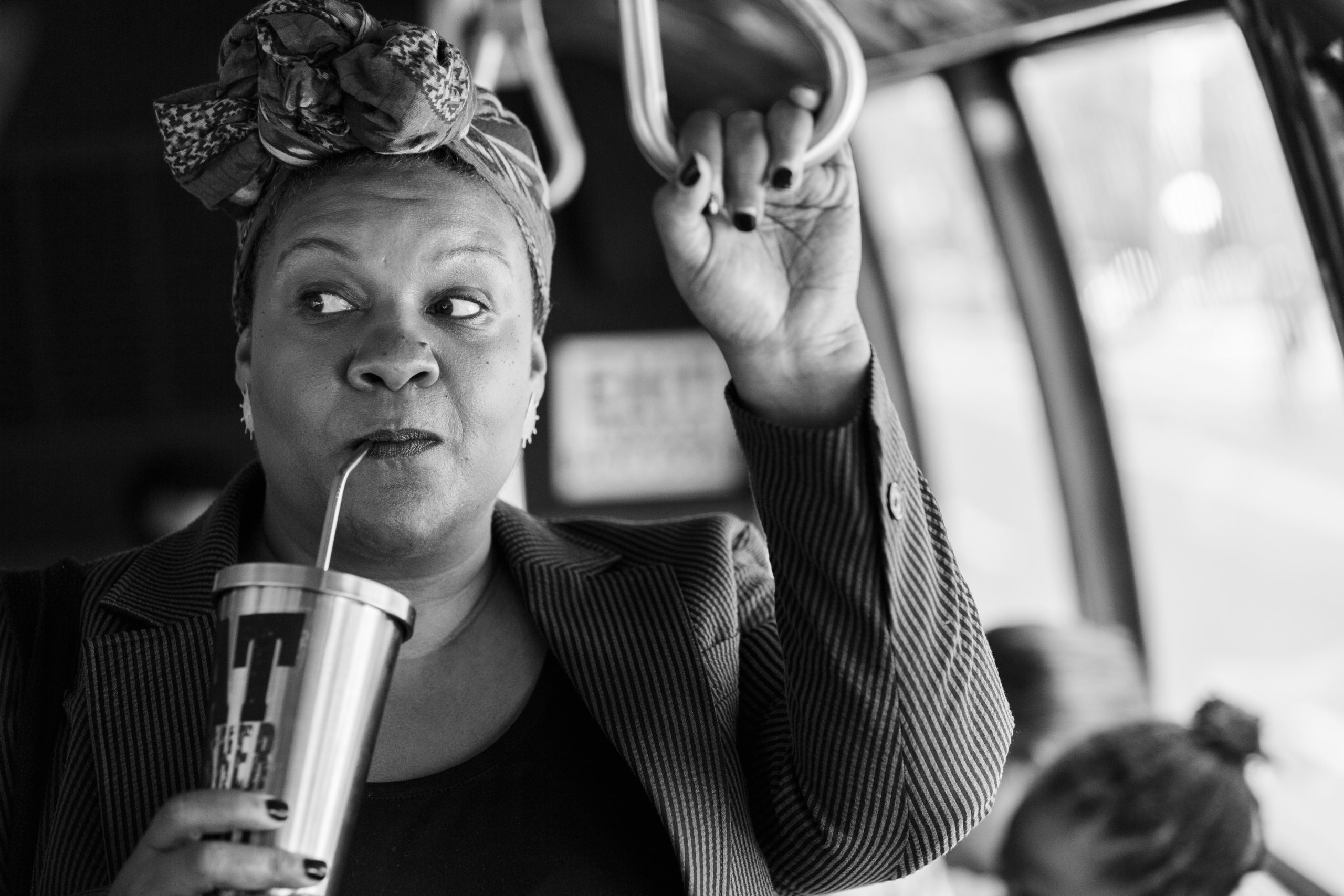
“And if I’m not creatin art, am I committin a crime?”
The tale of the struggling artist who reaches the precipice of success only to face the powers-that-be pressuring them into compromising their vision, putting the artist at a fork in the road where they must decide which path to embark upon. Perhaps its such a well-worn trope not just because it obviously speaks to the creatives behind filmmaking, but because compromise is such a universal aspect of the human condition. We all are eventually faced with a choice between following our hearts and following our minds. A new film from Netflix introduces us to a New Yorker facing this crisis as a 40-year old desperate for her moment in the sun.
The Forty-Year-Old Version is the semi-autobiographical debut feature from writer/director Radha Blank centering around a namesake character who is a New York City playwright and part-time high school theater teacher desperate to finally achieve her breakthrough before 40. After foiling yet another shot at success following a confrontation with producer Josh Whitman (Reed Birney), Radha feels the itch of another creative outlet, that of becoming rapper RadhaMUSPrime. But after her best friend and agent Archie (Peter Kim) juggles things around and gets her the shot of a lifetime with Whitman, Radha is forced to navigate achieving her dreams and compromise as she vacillates between the worlds of Hip Hop and theater on a quest to find her true voice.
What separates The Forty-Year-Old Version from previous cinematic explorations of struggling artists is that the film sits at the intersection of this universal midlife crisis of an artist still clawing at success they thought would have arrived by now, the eternal struggle for creative fulfillment in a world that forces adults to prioritize work and the stability that accompanies it, and the race specific struggle of black creatives to break through the demands and gatekeeping of the dominant, white culture in order to receive recognition and opportunities. Radha juggles all of these issues in one experience, with multiple aspects of her identity as an artist being tugged at in a different direction. At least one should each speak to a viewer and mirror their own experiences, whether it be the eternal desire for fulfillment as we age and feel our window closing, or for black viewers like myself, the struggle to break through a glass ceiling put into place by people who fail to see or understand the worth of your specific cultural perspective.
The film’s story featuring Radha’s struggle to balance life’s problems in NYC isn’t the only source that hearkens back to classic stories like She’s Gotta Have It and Manhattan, but the film’s 35mm black-and-white photography also serves to set the stage for its vibe. The film also includes a banging 90s rap soundtrack which serves as the backdrop and adds to the black New York flair and authentic feel. Archie (Peter Kim) and Radha have great chemistry and a real feeling relationship that serves as one of the film’s highlights. The ensemble that makes up Radha’s high school students serve as another bright spot in the film, providing a lot of the comedic material in addition to their own dramatic subplot involving Radha, Elaine (Imani Lewis), and Rosa (Haskiri Velazquez) that ends with a satisfactory payoff. Reed Birney is deliciously annoying and cringeworthy as the stand-in white liberal unable to recognize their own racial biases, perfectly conveying the obstacle this archetype represents for black people not just in entertainment, but a multitude of industries where their futures rest on the whims of those who condescend toward them. The romance at the center of the film between Radha and local music producer D Beats (Oswin Benjamin) felt slightly more forced and shoehorned into the film despite D’s service as a character in guiding Radha toward her true desires. Radha and D build naturally into a couple, but the initial spark and attraction between the two doesn’t feel as natural.
Other than a slight misstep with the film’s romantic interest, The Forty-Year-Old Version is a fantastic debut for Radha Blank that feels like a natural progression in the New York slice of life subgenre as mentioned the preceding paragraph. Her story as a struggle black creative speaks to both those dealing with the same specifically and those creatives of all backgrounds who just want to find their sweet spot and succeed. The film’s cinematography compliments its overall aesthetic perfectly and the entire cast works well, especially Blank herself, Peter Kim, the high school students. While Radha the character ended the film ready to embark on a new creative journey, Radha Blank seems poised for success in the lane she currently occupies.
Image: Netflix

